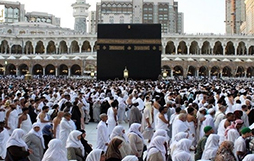Shah Abdul Hannan: A Monumental Personality, an Institution (Part-2)
Shakil Abdullah
Published: 2021-08-20 20:06:52 BdST | Updated: 2024-05-14 21:12:29 BdST
(Click here for Part-1)
Part-2:
Education and career overview
Shah Abdul Hannan received his early education in Netrokona, Narayanganj and he passed Matriculation in 1955 from Jessore Zilla School. He passed Intermediate form Dhaka College in 1957. He obtained his graduation from Jagannath College under Dhaka University in 1959 in Political Science and Economics and secured the second position in the country. He did his Master’s in Political Science from Dhaka University in 1961 and secured the first position.
Shah Abdul Hannan had a very successful career. Prior to joining government service, he was the Dhaka correspondent of the Muslim News International, Karachi, Pakistan and was regular contributor to the Weekly Young Pakistan, Dhaka on current affairs. He was also a Lecturer of Political Science in a private college in Dhaka for some time.
Shah Abdul Hannan joined the Pakistan Civil Service in 1963. He went on to serve the Government of Bangladesh in important positions such as Director-General of the Anti-corruption Commission and then moving on to become Deputy Governor of Bangladesh Bank [from 1993 to 1994]. In 1994, he became Secretary to the Government, the highest position for a civil servant in Bangladesh. He was the Banking Secretary in the Ministry of Finance [from 1994 to 1995], Secretary in the Ministry of Social Welfare [from 1995 to 1996]. In 1996, he became the chairman of the National Board of Revenue known as NBR. At one point during this tenure, he refused to yield to undue pressure from a senior politician that conflicted with his work ethic and eventually, he retired from the service. In the private sector, subsequently to his retirement, he became the Chairman of Islami Bank Bangladesh Limited, the largest and one of the most successful private commercial banks in Bangladesh. He was also the Chairman of the Ibn Sina Trust, Diganta Media Corporation and numerous other organizations. He was also the Vice-Chancellor of Darul Ihsan University and Asian University for some time.
As a civil servant
While Bangladeshi public servants are known for their bureaucratic red-tapism, Shah Abdul Hannan was different. As a civil servant he was an epitome of efficiency, integrity and rendering selfless service to people. He never had the habit of pressing the ‘snooze’ button to leave jobs for tomorrow. He used to dispense files quickly and resolve problems finding simple, just and reasonable solutions promptly and efficiently. While generally, it is very difficult for people to reach a person of his rank and status in this country, his door was famously open to anyone. He believed that any citizen had the right to meet him and place their issues of concern to him. He was always proactive, positive and cordial with his colleagues and subordinates. All of his subordinates consistently testified that Shah Abdul Hannan was a man of extreme generosity and good conduct.
As a civil servant, one of his groundbreaking contributions for Bangladesh was to conceptualize and introduce Value Added Tax known as VAT, a new form of tax which later proved to be very effective and beneficial for the country. He tirelessly worked with many experts in this field to make this happen. In 1991, when Mr. Saifur Rahman became Finance Minister, one of the first items that he had to deal with was passing the VAT law and starting it’s implementation. The business community was strongly opposed to VAT. Shah Abdul Hannan almost single-handedly fought for the VAT law and convinced the Finance Minister that this was the best path forward for the country. Eventually he was successful and the VAT came into law. Almost immediately, the Government’s revenue generation and overall fiscal position improved, enabling an easing of restrictions and taxes on imports and exports.
As Deputy Governor, Shah Abdul Hannan was in charge of the Financial Sector Reform Project (FSRP) that carried out banking reorganization and restructuring.
Shah Abdul Hannan was widely famous for his honesty as a civil servant. As a muslim majority country, honesty be a common quality. Unfortunately it is not. Corruption is rampant in every sector of the country, including in the civil service. The extent of corruption in the system is so far-reaching that it often requires a civil servant to exercise a great deal of will-power and effort in order to remain clean. In this context, Shah Abdul Hannan was a rare and glaring example of honesty and simplicity. Moreover, he also fought against the evil of corruption while he was the Director General of the Anti-corruption Commission.
One of his junior colleagues, a retired civil servant himself, writes about him:
“Secretaries and high-ranking military and civilian officials have palatial houses, apartments, and plots in posh areas such as Dhanmondi, Banani, Gulshan, Baridhara, Uttara, Purbachal, Lalmatia, and DOHS.
Some also have vacation bungalows and even herds of cows and buffalo, shrimp polders, resorts, and factories. A lucky few also own apartments, houses, and shopping centres in New York, Toronto, Dubai, Singapore, and Houston. Shah Abdul Hannan possessed none of these, His last residence was a flat at Uttar Goran (a definitive non-posh area of Dhaka) in a building that he shared with his brothers and sisters. ”
He carried out this simplicity throughout his life, regardless of his position. While he was the chairman of the Islami Bank Bangladesh Limited, he was in a real sense the most important banker in Bangladesh. Yet his office was very small, perhaps 25% the size of most bank Chairman’s offices. He was once asked by one of his friends how he had such a tiny office. He laughed, pointing to his bookcase with his books, his chair, the space for conducting his prayers and the wonderful panoramic sight of the city through his window. “What more do I need?” - he asked.
part-2 of 4, to be continued...
(Click here for Part-3)
(Click here for Part-4)
সকল প্রকাশিত/প্রচারিত কোনো সংবাদ, তথ্য, ছবি, আলোকচিত্র, রেখাচিত্র, ভিডিওচিত্র, অডিও কনটেন্ট কপিরাইট আইনে পূর্বানুমতি ছাড়া ব্যবহার করা যাবে না।





আপনার মূল্যবান মতামত দিন: